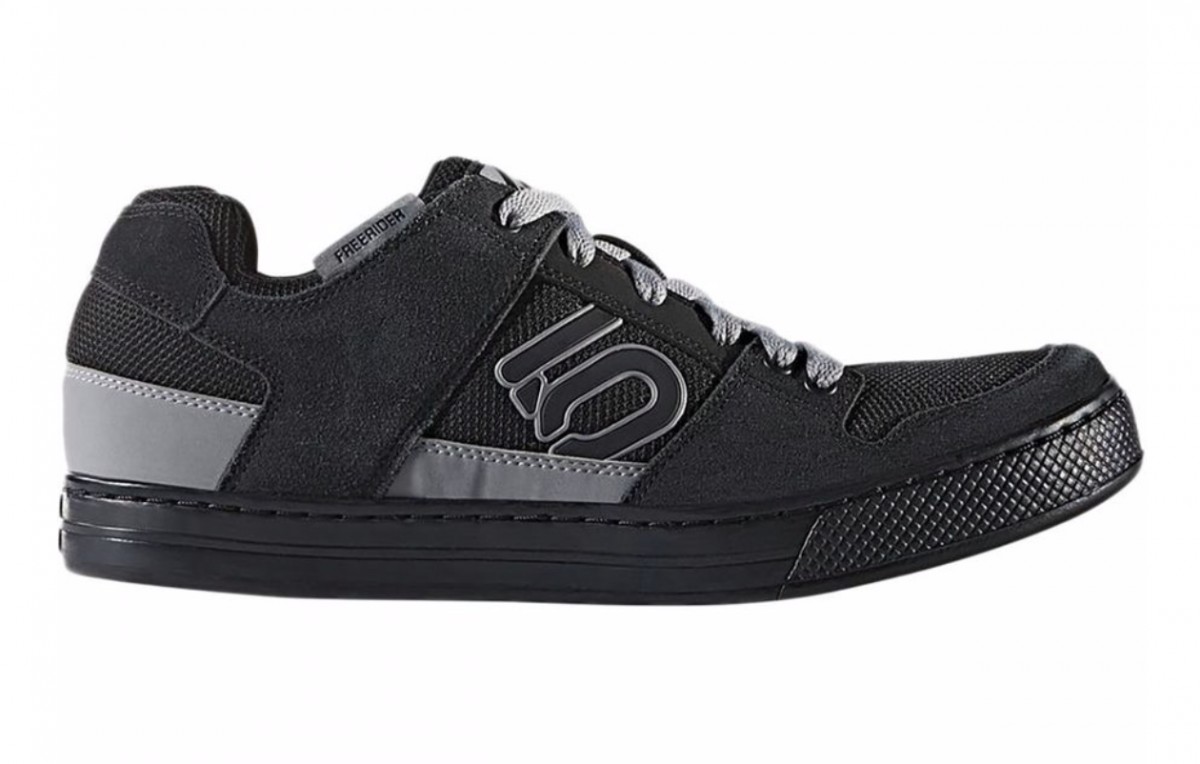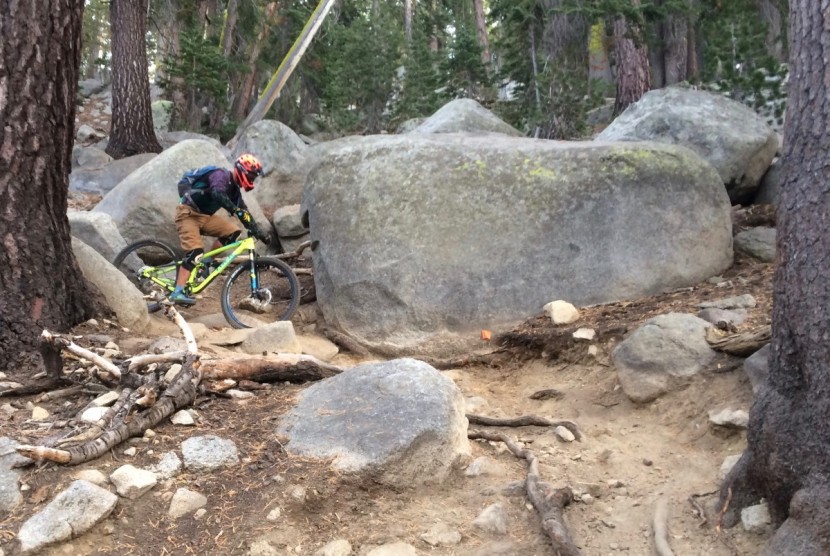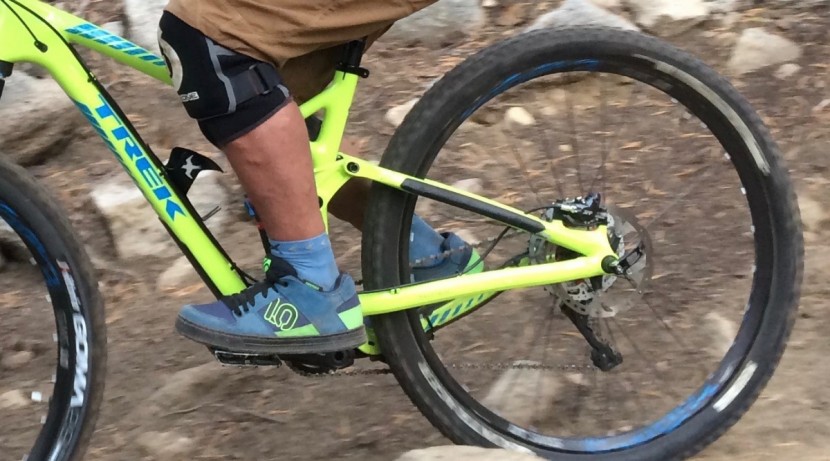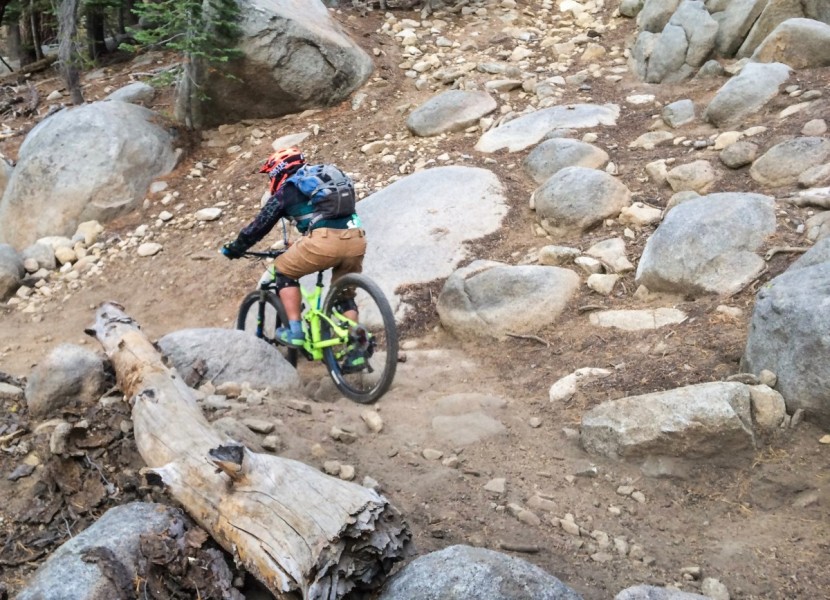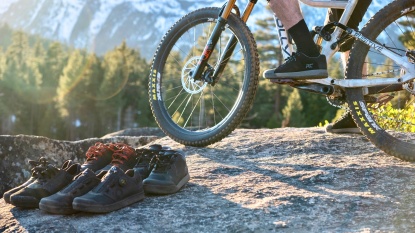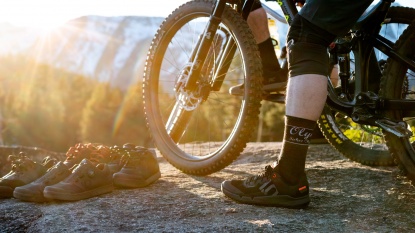The Freerider is available in a few new color options this season, like the black/grey combo shown above. Though the colors have changed, the rest of the shoe remains the same.
February 2019Five Ten Freerider Review
Our Verdict
Our Analysis and Test Results
The Freerider is a classic flat pedal shoe that has been a staple in Five Ten's shoe lineup for years. With a skate style, they almost blur the line between a causal and performance shoe. These affordable kicks have excellent grip with Stealth rubber soles, though their power transfer isn't the most impressive. That said, we feel they are a good versatile option for the rider who doesn't seek the stiffest soles or highest performance.
Grip
Continuing the trend of ultra-grippy shoes in our lineup, this is another Five Ten shoe that scored high marks for grip. The Freerider uses the proven Stealth S1 rubber that originally put Five Ten's bike shoes on the map. The sole tread looks just like the sole you'd find on a skate shoe, with loads of little divots to grip on the pins of your pedals. The S1 rubber compound feels incrementally more firm and subsequently, a little less grippy than the Mi6, but still provides a solid connection to the pedal. Even though this shoe didn't score the highest, that's not to say it isn't a top performer.
We put this pair through its paces, riding trails the shoe isn't intended to excel at, but they still performed admirably. With the solid Stealth S1 grip, the Freeriders are relatively capable climbers with excellent downhill performance that grip the pedals impressively well. We were lucky enough to have a wide variety of weather and trail conditions during our testing both on and off the bike. With tried and true Stealth S1 rubber on the ground, whether on dirt, rock, or even pavement, the soles provide ample traction off the bike in all but the wettest and snowiest conditions.
Comfort
Since our test rides put our test shoes through the wringer, the Freeriders were ridden harder than intended. When keeping them in their intended world, short to medium rides, riding the chairlift, and just kicking around town, they kept our feet happy. The comfort factor decreased with longer rides, especially longer XC rides with technical sections thrown in. After 2-3 hours of riding, our feet began to feel the effort, in part due to less padding and less supportive soles.
With the shoe's overall comfort comes an understandable decrease in rigidity (see “Rigidity” below) and during longer rides, it becomes noticeable. Not necessarily an issue of pure comfort is the lack of an easy way to secure excess shoelace length. With some lace-up shoes, you can simply tuck the laces to the side where the top of the tongue and ankle padding merge, but the Freerider laces didn't want to stay put. The Freerider sports a medium volume fit and should fit the majority of riders. The toe box is generous enough, but lower in volume than others. Off the bike, the BMX-inspired style of the shoe make this award winner an attractive option.
Rigidity and Power Transfer
The midsole of this pair is significantly less substantial than the more aggressive shoes in our test group. With less material in the midsole and a nonexistent shank, rigidity is significantly less than the stiffer options we tested. For more casual riding and mixed-use, the rigidity is spot-on, but for longer days in the saddle, the lower degree of support shows and presents itself in the form of less efficient power transfer and foot fatique.
Weight
Not surprisingly, a shoe intended for more casual riding and off-bike use focuses less on weight, and the Freerider is a little heavier than higher performance options. The weight is 14.75 oz per shoe in a men's size 9. For the casual rider, weight differences likely won't factor into purchasing decisions.
Breathability
This contender breathes well, even on hotter days, with its open synthetic mesh uppers. The breathability of the Freerider is among the best and it ranks high in this category. While the construction allows for good breathability, the open pattern does let in more water, snow, fine dirt, and dust. However, the shoes clean up easily.
Durability
With a molded single-cup outsole serving as the foundation, this shoe comes with a high level of durability. With fewer pieces and parts to potentially delaminate and separate, the sole of the Freerider looks like it's destined to last a long time. The suede and mesh uppers are made for durability and abrasion resistance, especially with the reinforcements on the toe, heel, and sides just above the sole. There is potential for sharper objects to snag the mesh sections, although we didn't experience this.
Conclusion
With the overall performance characteristics of the Freerider, these just may be the Goldilocks of flat mountain bike shoes for a lot of riders. Great sticky soles ensure a secure, locked-in ride and stay connected to pedals easier than with similar shoes, though the uppers of several other shoes are seemingly stronger than the Freerider. Another plus for the Freerider is the huge array of colors and upper variations offered — 12 color combinations — as well as additional Velcro straps and weather resistance features on some models. These shoes are a multipurpose shoe that performs as a jack of all trades, and they don't hit the bank account too hard.


